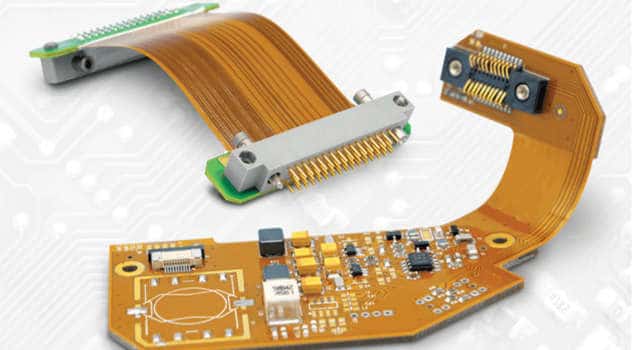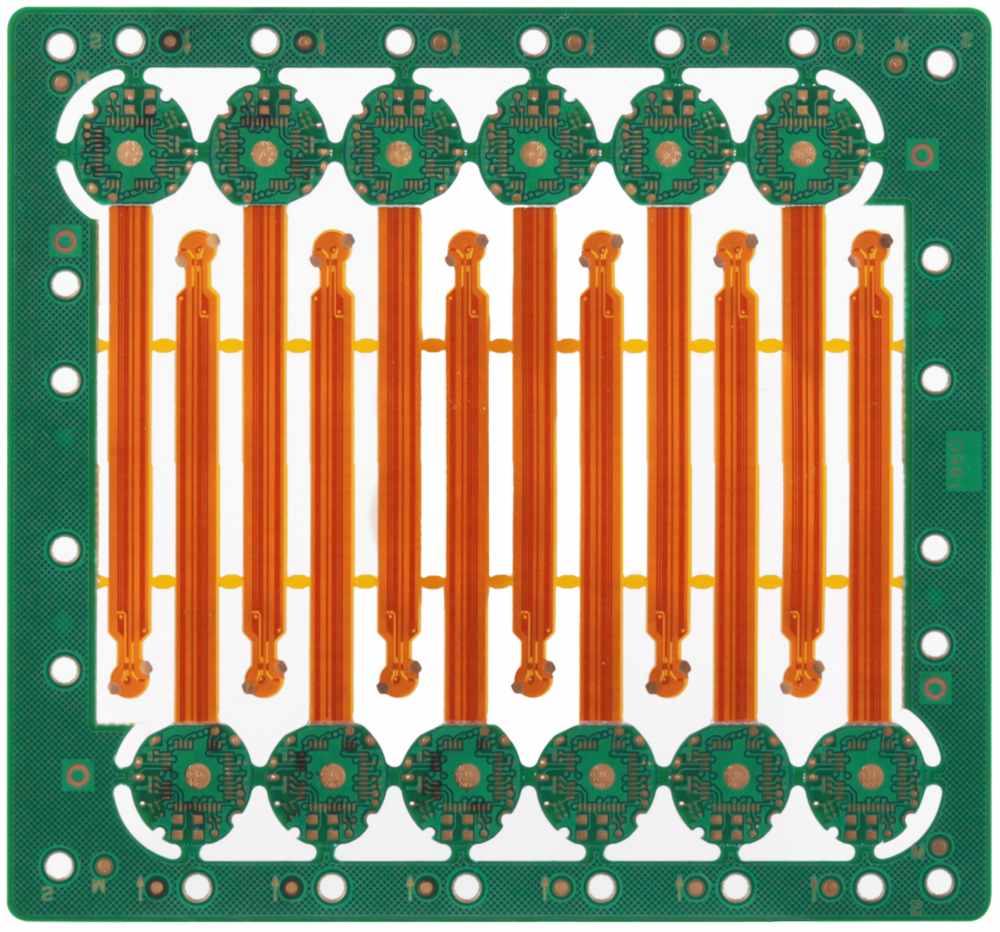The printed circuit board (PCB) manufacturing industry is rapidly growing and evolving. One key trend is the increasing use of rigid-flex PCBs, which combine rigid and flexible circuitry into one integrated PCB solution. Choosing the right rigid flex PCB supplier is critical to ensure high quality boards and reliable delivery. This guide covers key factors to consider when selecting a rigid flex PCB supplier.
Overview of Rigid Flex PCBs
A rigid flex PCB combines stiff printed circuit boards with flexible circuit connections. They provide a compact, space saving solution compared to connecting separate rigid and flex PCBs. Some key benefits of rigid flex PCBs:
- Compact size and shape
- Flexibility and vibration resistance
- Reliable connections between rigid and flex sections
- Reduced components and connections
- Ideal for dynamic, moveable assemblies
Rigid flex PCBs are commonly used in aerospace, military, medical and consumer electronics requiring compact, moveable PCB solutions. The rigid sections provide structural support while the flex circuits connect components and accommodate movement and vibration.
Key Considerations for Rigid Flex PCB Supplier Selection
Choosing the right rigid flex PCB supplier is not always straightforward. Here are key factors to consider in the selection process:
1. Rigid Flex PCB Manufacturing Capabilities
The supplier should have proven expertise and capabilities in rigid flex PCB fabrication. Important considerations:
- Experience with various rigid flex materials and constructions
- In-house engineering support for rigid flex design
- Advanced assembly equipment optimized for rigid flex PCBs
- Testing and inspection processes designed for rigid flex boards
- Experience with high complexity and high reliability rigid flex PCBs
Suppliers lacking specialized rigid flex expertise may struggle with quality and yields.
2. Quality Systems
The PCB supplier should follow robust quality systems backed by certifications such as:
- ISO 9001:2015 – Quality management system
- AS9100 – Aerospace industry quality standard
- IPC standards – PCB manufacturing standards
These demonstrate the supplier’s commitment to consistent quality and process control. Ask potential suppliers for information on their quality certifications and systems.
3. Electronics Manufacturing Services
Many PCB suppliers provide value-added services beyond bare board fabrication. Useful services to look for in a rigid flex supplier include:
- Design for manufacturing (DFM) guidance during engineering
- Prototyping and low volume production
- Component procurement and assembly
- Box build and testing services
- Drop ship and logistics capabilities
Suppliers with strong electronics manufacturing services simplify the process of going from design to finished product.
4. Customer Service and Support
The supplier should provide responsive, knowledgeable customer service and support:
- Dedicated engineering support and account management
- Clear communications and visibility into order status
- Quick turnaround on quotes, samples, and design questions
- Proactive updates on potential shipment delays or quality issues
Strong support indicates the supplier values customers and will partner effectively to resolve any issues.
5. Reliable On-Time Delivery
The PCB supplier should consistently meet committed delivery dates, especially for volume production orders. Review their track record and policies around delivery and lead times. Allowing extra lead time reduces on-time delivery pressure on the supplier.
6. Responsible Supply Chain Practices
Leading PCB suppliers emphasize responsible environmental and corporate practices including:
- Compliance with hazardous substance regulations like RoHS
- Developing sustainable manufacturing processes
- Ethical business standards and labor practices
- Information security and data privacy controls
Prioritizing these practices reduces supply chain risks and improves long term business continuity.
7. Competitive Pricing
Balance value against quoted pricing when comparing rigid flex PCB suppliers. The lowest bid may not provide the best long term value in terms of quality, support, and on-time delivery. Be wary of extremely low bids which may indicate unrealistic expectations from the supplier.
Sourcing Rigid Flex PCB Suppliers
Use these tips to source and evaluate potential rigid flex PCB suppliers:
- Seek referrals from colleagues on proven suppliers they use
- Research suppliers with online searches, directories, and customer reviews
- Review test reports and quality certifications posted by suppliers
- Request quotes from 3-4 leading suppliers for comparison
- Ask suppliers for references from existing rigid flex PCB customers
- Arrange factory site visits to directly observe capabilities and processes
Taking the time to thoroughly evaluate suppliers helps identify the best long term rigid flex PCB partner.
Leading Rigid Flex PCB Suppliers

Here are several leading global rigid flex PCB manufacturers to consider:
Compass Electronics Solutions
- Specializes in high reliability rigid flex for defense, aerospace, and medical applications
- AS9100 and ISO 9001 certified
- Rigid flex capabilities up to 24 layers
- USA based manufacturing
Flexible Circuit Technologies
- Design, prototyping, and volume manufacturing services
- IPC-6013 qualification for rigid flex fabrication
- Manufacturing sites in USA and China
- ITAR registered and ISO 9001 certified
Kimball Electronics
- Global rigid flex PCB manufacturing capabilities
- Expertise in HDI, RF/microwave, and flex-rigid-flex constructions
- Vertically integrated with EMS and testing services
- Facilities in US, Mexico, Poland, Thailand, China
NCAB Group
- Sweden based with global rigid flex PCB production partners
- Design support from early engineering stages
- Serving industries including automation, defense, medtech
- Certified to ISO 9001, ISO 14001, AS9100, and others
TTM Technologies
- Global rigid flex PCB production facilities
- Capabilities from simple 2-layer to complex high density PCBs
- In-house DFM, prototyping, and testing services
- Nadcap, ISO, OHSAS, and AS certified
This covers key factors and leading suppliers to consider for rigid flex PCB sourcing. Carefully evaluating PCB manufacturer capabilities, quality, customer support, and costs enables selecting the best long term rigid flex partner.
FQA
What are the benefits of using rigid flex PCBs?
Some key benefits of using rigid flex PCBs are:
- Compact size and shape
- Flexibility and vibration resistance
- Reliable connections between rigid and flex areas
- Reduced components and interconnections
- Ideal for dynamic, movable assemblies
What certifications should a rigid flex PCB supplier have?
Useful certifications to look for in a rigid flex PCB supplier include:
- ISO 9001:2015 Quality Management System
- AS9100 Aerospace Industry Quality Standard
- IPC Class 3 Fabrication Standards
- ITAR Registration for Defense Contracting
- RoHS/REACH Compliance
What services beyond PCB fabrication are useful from a supplier?
Value-added services to look for in a rigid flex PCB supplier include:
- Design for Manufacturing assistance
- Prototyping and low volume production
- Component procurement and assembly
- Testing and box build capabilities
- Drop shipping and logistics support
What is an effective way to source potential rigid flex suppliers?
Effective ways to find and evaluate rigid flex PCB suppliers include:
- Getting referrals from colleagues
- Researching supplier websites and directories
- Comparing quotes from several leading suppliers
- Reviewing test reports and quality certifications
- Checking references from existing customers
- Visiting candidate suppliers’ factories
How can you ensure consistent on-time delivery from a rigid flex supplier?
Tips to help ensure consistent on-time delivery from a rigid flex PCB supplier:
- Review their track record and policies around lead times
- Allow generous lead time in ordering to reduce pressure
- Seek suppliers with production redundancy if possible
- Obtain commitments to production schedules and expedite fees
- Maintain frequent communication for order visibility
- Use suppliers with proactive delay notifications




